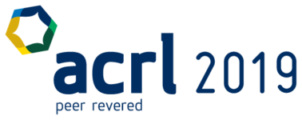Session Description:
How interculturally competent and inclusive are library faculty and staff, really? And how do we know? In this session we will share the findings of a study that assessed the intercultural competence of library workers, individually and collectively. In the study, library workers were encouraged to expose themselves to other cultures over a 6 month period. After the exposure period, the workers were re-assessed for growth. We will share the findings and discuss intercultural competence in library services and other ways to create inclusive services and course, through the people that create them.
